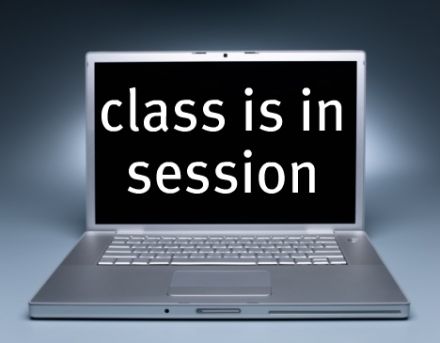

With recent advancements in technology, more colleges and universities have been adopting distance-learning programs. Originally, these programs were created to meet the needs of individuals who could not participate in traditional programs, including older, nontraditional students. Today, individuals from every age group and diverse background are enrolling in virtual degree and certificate programs. Online education is perfect for Generation Y, the recent college graduate that wants to continue her education, but wants to start her career too.
While online education is becoming a more normal part of society, it has faced many stigmas throughout its evolution, especially among the majority of generation-y students who grew up watching “pajama girl” on TV getting her degree without leaving her bed. It’s time to dispel the misconceptions and accept that online education is no longer the same thing as all of those TV commercials we saw growing up.
Misconception #1: Faculty do not invest much time or planning into distance learning.
According to Laurie G. Hillstock in the article “A Few Common Misconceptions about Distance Learning,” a common belief has been that professors do not need to spend as much time planning curriculum or lessons for online classes, since online students are expected to be more responsible for their own learning.
The reality is that faculty needs additional training in the technology being used for online courses and need to study effective means of delivering content. Faculties are also expected to be more available to students, quickly responding to discussion forums and weekly assignment submissions. A university study found that half of the distance learning professors polled reported that they spent 30 more hours in preparation time.
Misconception #2: Online classes are easier.
Another mistaken belief is that online classes are easier than traditional ones, and students can always complete them at their own pace.
In fact, online learning requires more self-discipline on the part of the student. There is still a syllabus and assignment deadlines that have to be met, and the top tier of distance learning programs are offered by established universities who aim to keep their online courses as rigorous as their on-campus ones. Distance learning students also still need to participate regularly in discussions, with the best online programs conducting these via live face-to-face video chats.
Misconception #3: Online classes are not as respectable as traditional programs.
For some reason, online programs have carried the stigma of being lower quality than traditional programs — yet many prestigious universities offer online courses and programs, including Stanford and Harvard.
Students today are technologically savvy and universities understand that demand. Also, by offering online classes, they can serve a talented global population, rather than just students in the nearby radius. These online offerings are from universities that are respected around the world.
One of the greatest things about distance learning is that it makes education accessible to talented students everywhere, including generation-y workers who may have been working at a company for a year, but would like to purse a degree at the same time. It is also well suited to different learning styles and students who do not feel challenged enough by traditional education. As more virtual schools open up at every educational level, it is no doubt that distance learning and online education will soon gain the respect that it so rightfully deserves and that these misconceptions will be washed away.
Author Bio: Joshua John currently works in community relations for the University of Southern California’s Virtual Master of Social Work program, which provides social workers the opportunity to earn an online social work degree and apply for a social work license. He also loves gadgets, movies, and all things Batman. You can follow him on twitter: @joshuavjohn.
(This is a sponsored post from our friends at 2U.)
